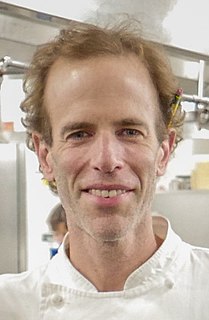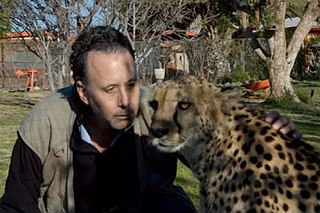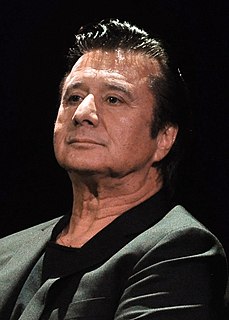A Quote by Fritjof Capra
Shallow ecology is anthropocentric, or human-centred. It views humans as above or outside nature, as the source of all value, and ascribes only instrumental, or 'use', value to nature. Deep ecology does not separate humans - or anything else - from the natural environment. It does see the world not as a collection of isolated objects but as a network of phenomena that are fundamentally interconnected and interdependent. Deep ecology recognizes the intrinsic value of all human beings and views humans as just one particular strand in the web of life.
Quote Topics
Above
Anything
Anything Else
Beings
Collection
Deep
Deep Ecology
Does
Ecology
Else
Environment
Fundamentally
Human
Human Being
Human Beings
Humans
Instrumental
Interconnected
Interdependent
Intrinsic
Intrinsic Value
Isolated
Just
Just One
Life
Natural
Natural Environment
Nature
Network
Objects
Only
Outside
Particular
Phenomena
See
Separate
Shallow
Source
Strand
Use
Value
Views
Web
Web Of Life
World
Related Quotes
Early ecologists soon realised that, since humans are organisms, ecology should include the study of the relationship between humans and the rest of the biosphere. ... We don't often tend to think about the social sciences (history, economics and politics) as subcategories of ecology. But since people are organisms, it is apparent that we must first understand the principles of ecology if we are to make sense of the events in the human world.
If any value is deeply evolutionarily familiar, it is reproductive success. If any value is truly unnatural, if there is one thing that humans (and all other species in nature) are decisively not designed for, it is voluntary childlessness. All living organisms in nature, including humans, are evolutionarily designed to reproduce. Reproductive success is the ultimate end of all biological existence.
According to classical utilitarianism, the only intrinsic good is happiness; the only intrinsic bad is pain. That implies no intrinsic value in preserving nature, that preserving an endangered plant is valuable only if it benefits humans or other animals. Intuitively, that seems wrong but perhaps I shouldn't trust my intuition here.
The popes have spoken of human ecology, closely linked to environmental ecology. We are living in a time of crisis: we see this in the environment, but above all we see this in mankind Man is not in charge today, money is in charge, money rules. God our Father did not give the task of caring for the earth to money, but to us, to men and women: we have this task! Instead, men and women are sacrificed to the idols of profit and consumption: it is the 'culture of waste.'
Ecology more important than saving animals from slavery??? Humans suffer the raping of the earth but animals suffer DOUBLY: the raping of the earth PLUS their own raping by humans. They are innocent/they are not the ones who raped the earth/they enrich it for us all from the tiniest microscopic beings to the largest ones.
In essence, the stock market represents three separate categories of business. They are, adjusted for inflation, those with shrinking intrinsic value, those with approximately stable intrinsic value, and those with steadily growing intrinsic value. The preference, always, would be to buy a long-term franchise at a substantial discount from growing intrinsic value.
And there is this fact of the twelve baskets: why twelve? What does it mean? Twelve is the number of the tribes of Israel, symbolically it represents all the people. And this tells us that when food is shared equally, with solidarity, nobody is devoid of the necessary, each community can meet the needs of the poorest. Human ecology and environmental ecology go hand in hand.
Humans suffer from self-centred notions as to the nature of life. Humans assume that alien life forms should conform to standards that match our own, including logic and morality. Even among humans, morality is ignored when expedient. Why should we expect more from an alien life form than we demand from ourselves?
I don't want to convince you that mathematics is useful. It is, but utility is not the only criterion for value to humanity. Above all, I want to convince you that mathematics is beautiful, surprising, enjoyable, and interesting. In fact, mathematics is the closest that we humans get to true magic. How else to describe the patterns in our heads that - by some mysterious agency - capture patterns of the universe around us? Mathematics connects ideas that otherwise seem totally unrelated, revealing deep similarities that subsequently show up in nature.


































